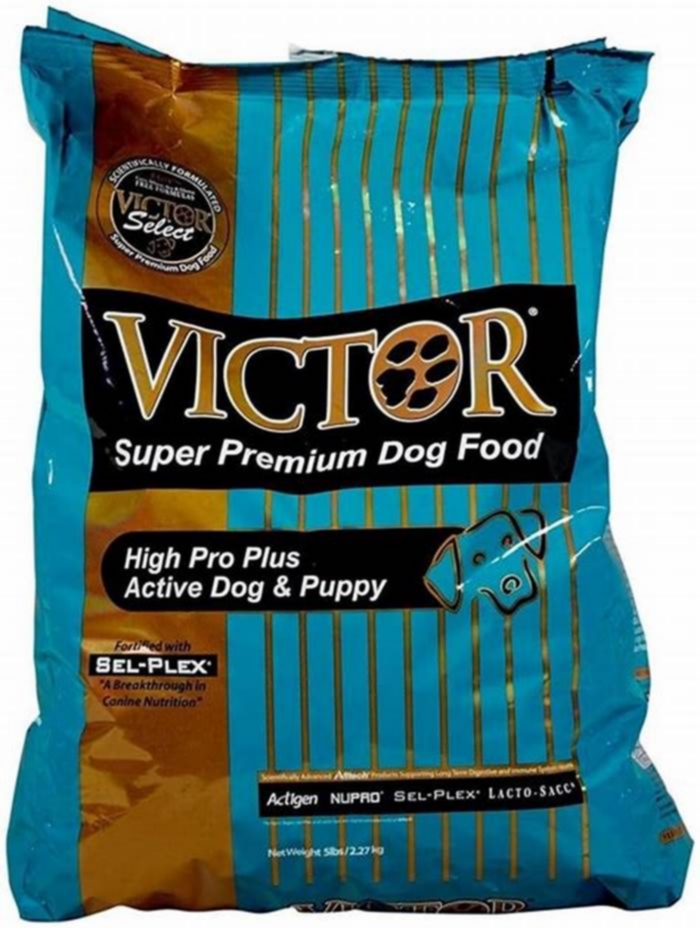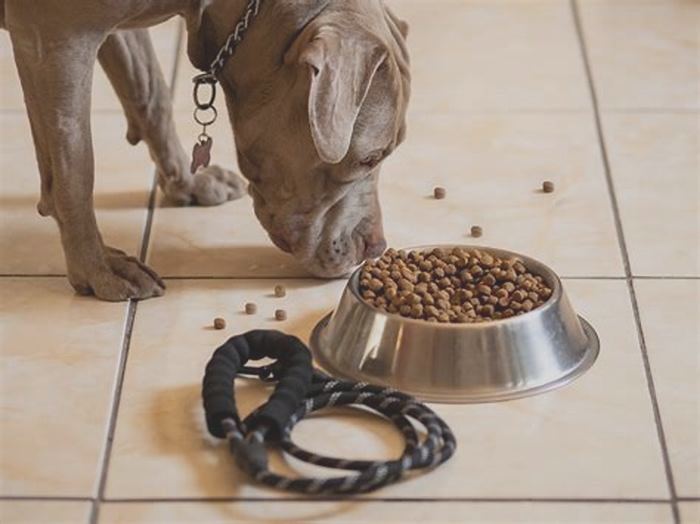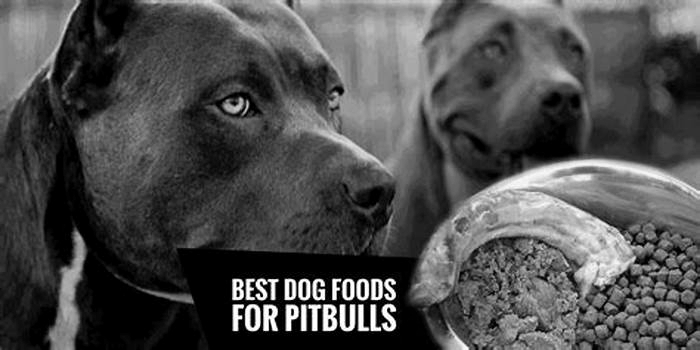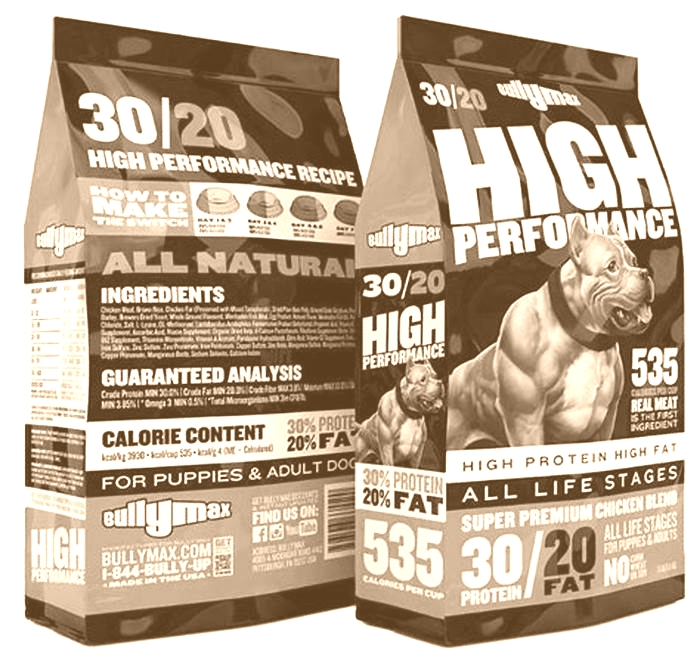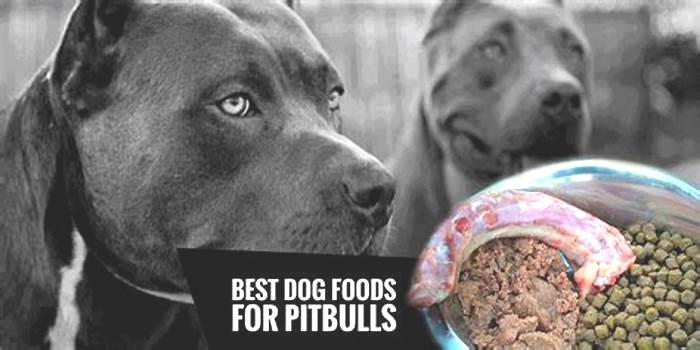best dog food for 5 month old pitbull

Pitbull Feeding Chart: How Much To Feed Your Pitbull Puppy
The Pitbull, also called the American Pitbull Terrier, Bull Terrier, or Bully, is a popular dog breed. They often get a bad reputation due to a history of being used as fighting dogs. Pitbulls are quite good companion dogs when trained and socialized properly. Pitbulls are overall a generally healthy canine breed. On average, they live about 12 to 14 years. Several different breeds of Bully dogs fall under the name Pitbull. These include the Staffordshire Bull Terrier, the American Staffordshire Terrier, the American Pitbull Terrier, and the American Bully.
There is more to feeding a Pitbull than buying dog food. Proper nutrition throughout the Pitbull lifespan plays a crucial role in how healthy they are and how long they will live. How much should you feed your puppy? What nutrients? What food is the right food? How long will she need to eat puppy chow? Do you know what to feed your Pitbull throughout her life? Our guide has answers to common Pitbull feeding questions and more.
We have all the information you need, whether you are a first-time Pitbull owner, a first-time puppy owner, adopting an older dog, or an experienced owner looking for a reference point. Just remember, it is perfectly normal to have questions. Seeking out information and making sure we are doing right by our 4-legged friends is just part of being a responsible canine owner. Every dog is different. However, our guide provides a general guideline to help answer all your Pitbull feeding questions.
Pitbull Puppy Feeding Chart At A Glance
How Much Should A Pitbull Puppy Eat?
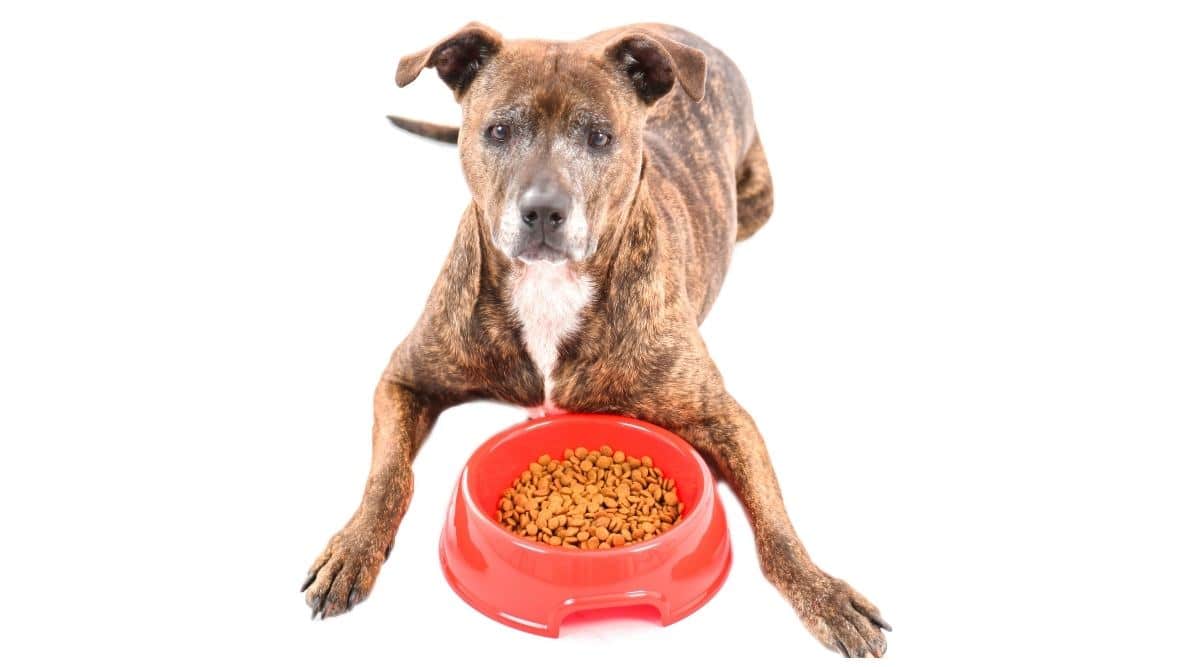
Pitbull puppies need food with a higher calorie and fat content to help them grow. An ideal diet would include 22% to 32% protein. Protein is pivotal in muscle and bone growth. Ideally, Pitbull puppies should be on their mothers milk for the first six weeks of their life. Pitbull puppy formulas can be used as a substitute if the mother cannot nurse puppies for this long. Males tend to be larger and will need more sustenance.
Week 1
Newborn Pitbull puppies are blind and deaf at birth. Their eyes and ears will open in the next few weeks. At this time, puppies will spend most of their time asleep or eating. Despite seeming like they are not doing much, puppies are growing quite rapidly at this time. They will stick very close to their mothers and rely on their mothers milk for their nutrition.
The mothers milk has everything puppies need. It is high in colostrum, which gives pups antibodies. Colostrum is the first milk produced by a momma dog directly after birth. It is custom-created to fulfill the unique needs of puppies and is full of antibodies, hemoglobin, and other growth factors. Colostrum cannot be recreated artificially. If possible, mother dogs should breastfeed puppies right after birth to get this nutrient-rich health supplement that is important to their development.
Mother dogs should be encouraged to nurse their puppies as long as possible. However, unfortunately, some mother dogs will reject their pups or not be able to produce enough milk to sustain them. If this happens, contact your vet as soon as possible. They can help you choose the right supplements and substitutes to ensure your puppy gets everything she needs.
Week 2
By two weeks old, puppies will start to look and feel a little sturdier. Their eyes and ears will open. You will see which puppies are the strongest and most active. Make sure all puppies are getting the opportunity to nurse from their mom. Smaller pups who may not be getting enough milk may need to be given formula as a supplement. It is a lot of work for puppy owners in these first few weeks to ensure that puppies are getting enough appropriate nutrition. This is a vital time in their development and sets the stage for a healthy life.
Week 3
At three weeks old, Pitbull puppies will have found their feet. They will start taking exploratory steps around their mothers and will likely be off-balance and a little UN sturdy. They should still be entirely sustained on the mother dogs milk. Do not attempt to wean a puppy just yet. If a puppy needs to be put on formula, try to stick to one kind. Ask your veterinarian for the best milk substitute. Do not try to introduce a three-week-old puppy to any type of solid food. A Pitbull puppys appetite will start to increase as they burn off extra energy learning how to use their legs.
Week 4
At four weeks old, your Pitbull puppy will be reasonably sturdy on her feet. She should still be nursing if possible. If weaning needs to start at this point, there are a couple of ways to do it. The substituting of formula for breast milk, as we mentioned before, will provide a puppy with the same nutritional sustenance she will get from her mother. It is okay at this time to introduce a tiny amount of puppy food mixed with water. The mixture should be mostly water, with a ratio of about three times as much water as dog chow.
Puppies may or may not be interested in puppy chow at this time, and it is perfectly normal for them not to be. Her moms milk is still the best choice, and instinctively she may know this. When she is ready to move on to dog food, she will let you know. Do not stop trying to introduce it, but do not force the issue. They will likely have a set of puppy teeth at least partially grown in by now.
Week 5
By five weeks of age, Pitbull puppies will be a little more curious. They will want to explore around them more and will have mastered their legs and feet. They should also be growing some teeth by this time, which may coincide with their interest in solid dog chow. Again, puppies at this age should be fed a mixture that is mainly water. They should still get most of their nutrition and food from their mothers milk.
6 Weeks
At six weeks (about one and a half months), old Pitbull puppies should be interested in a mixture of water and dog food. You can reduce the amount of water in the mix if your puppy is eating well. She will still be nursing and getting the bulk of her sustenance from her mother. However, if this is not possible, continue to supplement with puppy formula. Keep in close touch with your vet to make sure that your puppy is getting the right amount of nutrients and vitamins crucial to her development if she cannot nurse.
7 Weeks
By seven weeks (about one and a half months) of age, Pitbull pups should start weaning from their mother. They will likely be eating puppy chow. You can cut out most of the added water at this time and work on getting your puppy to eat the dog food more rather than relying on their moms milk. By now, mother dogs will likely tire of nursing, and their bodies will need replenishing.
8 Weeks
Pitbull puppies should be 100% reliant on puppy food by eight weeks of age. They should get offered meals about four times a day. It is best to get your puppy on a consistent feeding schedule. Even if your puppy whines a little bit between mealtimes, it is okay to let her get a little bit hungry rather than give in to the whining. By this stage, pups should not be getting formula and should not be bothering mom for milk anymore. They are also old enough to go to new homes. Before eight weeks of age, it is really best that they stay close to mom.
9 Weeks
Nine-week-old pups will be 100% on solid puppy chow. There are plenty of options for both dry and wet foods. About two cups of chow a day divided into three or four servings is what they need right now. Puppies will be highly active at this stage, and you may see some fluctuations in appetite. There may be some days when she wants to eat everything in sight and other days when she seems a little less hungry. If your dog refuses to eat, reach out to your veterinarian to figure out the problem.
Puppies that go off to new homes or come into your home at this age might be switched from the food the breeder was using to the food their new owners choose. Keep in mind that this switch may cause them a little bit of tummy trouble. If possible, try to wean them off the old food by introducing a mixture of old puppy chow and new puppy chow. You can gradually phase out the old food. Make sure not to do this too quickly, as it can cause a puppy digestive distress.
10 Weeks
A ten-week-old Pitbull pup can only be described as a handful. She will be full of energy and curious as can be. She may try to investigate the great big new world she lives in by trying to eat everything in sight. This includes peoples food, puppy chow, and household items that might not be edible. Keep a very close eye on her, and make sure to keep your home as clean as possible. Your pup will have a bigger appetite now than you have ever seen. This is because she is burning a lot of energy playing, exploring, and learning new things. Your puppy should have been to the vet to talk about puppy shots and any nutritional or other health concerns by ten weeks.
At this age, puppies may start to develop an attitude and a little bit of a stubborn streak. This can sometimes affect mealtimes. If she refuses to eat at mealtime, it is recommended to leave the food out for 10 minutes and then put it away. There is nothing like a growling tummy to teach your puppy that mealtimes are when we eat. It is vital to establish these set mealtimes and limit your pups control of her food. She may be cute, but she does not know what is best for her well-being and long-term health.
11 Weeks
At eleven weeks (about two and a half months), your Pitbull puppy should still be on a regular feeding schedule. Four times a day is ideal. Three times a day is okay if four is not possible. Limit mealtimes to about 10 to 20 minutes. Make sure to clean up any leftovers that she does not eat. Leaving chow out all day sends a message that she can eat whenever she wants to. It is essential to keep her on a regular feeding schedule to monitor how much she is eating, teach her to eat the food you offer, and see how well she reacts to it.
12 Weeks
At twelve weeks (about three months) old, your Pitbull pup will be a bundle of energy. Periodic snacks and treats throughout the day are okay. Try not to overdo this. Stick to regular mealtimes. Three meals a day is perfect at this point. Keep your Bully pup on puppy chow, even though she might seem ready or interested in adult dog kibble. Puppy formulated dog food contains the perfect balance of nutrients to ensure your puppys health. She should stay on puppy chow for the first year of her life. Puppy kibble has a higher calorie count, and with a large amount of energy she is expending, she will need that specially formulated puppy diet.
A general guideline for Pitbull puppy eating schedules is as follows:
- Puppies under four months should eat four meals daily.
- Bullies that are about four to six months old should have three meals daily.
- Pitbull pups older than six months should have two to three meals every day.
- Adult Pitbulls should eat about 1 pound or two cups a day of food. Some larger Bullies may need more.
Remember, as your puppy gets older, she will need fewer calories. Younger puppies need more, so they will need to eat more periodically throughout the day. Very young puppies will need meals offered to them every few hours to ensure that their blood sugar stays at a healthy level.
Pitbull pups will reach an adult weight at about 13 or 14 months old. So, you can expect rapid growth for the first few months and then growth to taper off as they reach a year old.
Newborn Pitbull puppies weigh about 7 to 10 ounces. By two months of age, they will have reached about 7 pounds. At four months, Pitbulls can weigh in their range of 18 to 21 pounds. Around six months, they will reach 30 pounds. Between 6 and 8 months, Pitbulls will reach on average 35 pounds, and by a year or 14 months, they will reach 38 pounds.
Some Pitbulls will weigh much more than that. Many reach 60 or even 100 pounds. It all depends on their specific bloodlines, whether they are purebred, and the genetic makeup of their parents. The information we are presenting is a general guideline.
Regardless of the size, your Pitbull reaches as an adult, the most important thing to remember is that she is healthy and receives proper nutrition from newborn to adulthood.
Different Types Of Puppy Food

There are five main types of dog food that pet parents can choose from. These five categories are:
Kibble (Dry)
Kibble is also called dry food. Many owners choose kibble for their dogs because it is the most economical and affordable option. Kibble often comes in generous-sized bags and stays fresh, when appropriately stored, for a long time. Kibble also works as a dental cleaner because it rubs along a dogs teeth.
Stay away from the semi-moist varieties, especially those shaped like human foods. These tend to be exceptionally low in nutritional value and should not be relied on for proper nutrition. They can be used as an occasional treat, but long term will not provide your Pitbull, pup, or adult with the nutritional balance they need. Learn more about our favorite Pitbull foods.
Canned Or Pouch (Wet)
Wet dog food comes in a can or pouch. This food also stays good for a long time and is sold in almost every grocery store one visits. Canned food tends to be more expensive, but not every canned food formula will provide the appropriate nutritional balance for a Pitbull puppy. Canned food also tends to have a high-water content, up to 75%. The more water, the less nutritional value to your puppy. This may mean she needs to eat more.
Pay very close attention to the ingredients when selecting wet dog food. She will also experience looser stools than dogs that eat mainly kibble. Try to look for those that specifically say that they meet 100% of a puppys nutritional needs. Often the label will mention this. Be incredibly careful with canned dog food, as it tends to be low in digestible proteins and high in bad fats.
Fresh (Human-Grade)
Fresh dog foods are designed by vets and made from high-quality, fresh ingredients. There are even programs, including The Farmers Dog, where you can get freshly made canine chow delivered specifically formulated to your dogs age, weight, and breed. These are on the more expensive side but are incredibly good for your dog. Even if you cannot afford to feed your Pitbull puppy fresh, human-grade dog food every day, it is something to consider occasionally and for a special treat.
Home-Cooked
Some pet owners may think that they can cook food for their pet that will be better than the commercial dog chow options. The likelihood is that unless you are working in close communication with your vet and following precise instructions, you should not feed your puppy home-cooked meals. There is no way to test it for nutritional value. Humans also use many spices and ingredients that can be harmful to dogs and hard on their digestive systems. While sneaking a treat here or there is not going to be a big deal, do not make a habit of cooking your dog meals every day.
Raw Or BARF
BARF stands for biologically appropriate raw food, or bones and raw food. Pet owners need to be incredibly careful when choosing this diet for their dogs. Raw diets are often far too rich for a puppys stomach. They are also not necessarily always nutritionally balanced for what your puppy needs.
If you are interested in the BARF diet for your Pitbull, make sure to consult with your veterinarian and a pet nutritionist first. Raw diets must include raw edible bones, raw muscle meats, raw organs, vegetables, fruit, seeds, nuts, and grains. Never switch to a raw diet for your Pitbull without explicitly discussing it with your veterinarian first.
Puppy vs. Adult Dog Formula

Puppies need more calories, fat, protein, and minerals than adult dogs. Large breed dogs are at higher risk for developmental orthopedic issues like hip and elbow dysplasia. Large breed puppy foods will be specially formulated to include a little less fat and a very specifically balanced calcium to phosphorus ratio. The rapid growth of larger breeds is considered when developing large breed puppy food. Puppies fed adult dog chow too soon are at risk for nutritional and developmental deficiencies.
Adult dogs need fewer calories than puppies and less protein. Adult dog food has more filler ingredients as well. The Association of American Feed Control Officials (AAFCO) provides regulations and guidelines for dog food. Their standards are as follows:
- Protein 22% for puppy food and 18% for adult dog food
- Fat 8% for puppy food and 5% for adult dog food
- Calcium 1% for puppy food and 0.6% for adult dog food
- Phosphorus 0.8% for puppy food and 0.5% for adult dog food
- Sodium 0.3% for puppy food and 0.06% for adult dog food
- Look for foods with a calcium to phosphorus ratio: of 1.1:1 to 1.3:1%.
It is important to feed dogs the correct puppy or adult formulated food. Puppies who eat adult dog chow will lack calories, protein, and fats and can suffer from stunted growth and development as a result. Larger puppies should eat puppy food for a little longer, as they may not fully develop, like Pitbulls, until 13 or 14 months. (Some Bully breeds may even stay on puppy formula food until 16 months). Adult dogs fed puppy food will have too many calories, putting them at risk for obesity.
Importance Of High-Quality Food

The poorer quality brands use filler ingredients, preservatives, artificial colors, and other ingredients that have no nutritional value. They are also often low in omega fatty acids and protein. These foods are the equivalent of human junk food and have zero nutritional value for dogs of any age. Spending the extra dollars for high-quality food is an investment in your Pitbulls lifelong health. That is worth any expense, and food is not the place to try and save a few bucks.
The best food for your Pitbull will depend on her specific breed, size, age, and health. Adult dogs will need fewer calories than puppies. The average adult Pitbull will need about 1100 calories a day. Working dogs and large-sized dogs will need more. Senior Pitbulls need fewer. Those dogs aged seven or older will need about 900 calories a day. Keep in mind this fluctuates depending on size and activity level. Be careful not to overfeed your Pitbull. Overweight Bullies are at risk of joint issues, cardiovascular disease,
Protein
Pitbull puppies need dog chow that is 22% to 32% protein. Pitbull food should have high-quality animal proteins. Eggs, fish, poultry, turkey, duck, or rabbit are good choices. Limit lamb and beef, as these animal proteins have a higher rate of causing cancer in canines. Avoid pork and pork products for your Pitbull pup.
Carbohydrates
Pitbull pups need food that has 35 to 45% carbohydrates. Protein and fat are not enough to sustain your Bully throughout her day. Healthy carbohydrates can be found in grains (rice, oatmeal, barley, etc.). They are also found in vegetables. Peas, lentils, and sweet potatoes are common sources.
Fiber
Your Bullys diet should have 2.4% to 5.6% fiber for puppies and younger dogs. Fiber helps dogs regulate their digestive systems and keeps their stools healthy. Fiber is low-calorie and can be found in many fruits and vegetables. Sweet potatoes, beet pulp, spinach, green beans, apples, ground flaxseed, carrots, strawberries, and even lettuce are great healthy fiber sources.
Omega Fatty Acids
Omega fatty acids are necessary components needed for healthy puppy development. It is vital to watch fat intake, but some healthy fats are needed for skin and coat health. They also play a role in brain development, eye health, and overall health. Fish, fish oils, meat, and certain oils are ingredients to look for. Fat should make up 11 to 15% of dog food. The amino acid DHA is essential for brain development. Look for foods that have at least 0.20% DHA.
Vitamins And Minerals
Puppy chow for Bullies should have between 0.8% and 1.4% calcium and between 7% and 1.2% phosphorus. Puppy chow also needs to include vitamin D and magnesium. Calcium is essential for bone health, but too much can cause issues with joint formation. Too little leads to weak bones. Adult Pitbulls need dog chow that has about 25% protein.
Note: Clicking the above links take you to TheFarmersDog.com or Chewy.com, where you can get additional product information and customer reviews. If you make a purchase, we earn a commission at no additional cost to you.
How Much Do Pitbull Puppies Grow Each Week?
Pitbull pups grow quickly. They can put on about 1 to 2 pounds a week for the first few months. Males are larger than females on average. However, there can be smaller males or larger-sized females depending on the breed mix. Younger puppies will put on more weight for the first few months and then slow down as they start to mature. Newborns can weigh anywhere from 7 to 20 ounces.
They will weigh between 2 and 5 pounds by one month of age. 6-month-old Pitbull pups weigh between 15 and 35 pounds. Year old to fully grown Pitbulls will range from about 15 to 55 pounds, depending on their genetics.
Keeping Your Pitbull At The Right Weight

Every dog is different, so their exact size and weight will depend on several factors, including genetics, care, nutrition, exercise, and overall health. One thing to keep in mind is that Pitbulls like to eat a lot. So, their owners must be vigilant about making sure they do not overeat or steal peoples food. Picking high-quality dog chow for your Bully is key. Regular exercise is a vital component of your Pitbulls overall health and keeps her at the right weight. The information we have here is a guideline. Every dog has unique needs.
Excess weight can lead to many long-term health issues for your Bully. Joint dysfunction, osteoarthritis, diabetes, heart disease, bloat, and obesity are just a few of the significant conditions that can come from overeating. So weight management, proper nutrition, physical activity, and regular vet checkups should be high priorities for any Bully owner.
Frequently Asked Questions
Can I feed my Pitbull once a day?
No. Your Pitbull needs to eat more than once a day. Adult dogs should be fed 2 to 3 meals a day. Puppies will need four meals a day once they switch to adult kibble.
What does it cost to feed a Pitbull?
It is a significant financial investment to feed a Pitbull. High-quality, well-balanced dog food is pricier. However, cheaper chow will not offer your dog the proper nutrient balance and may even lead to health and developmental issues. Expect to spend anywhere from $25 to $60 or more each month, about $300-$800 a year, to feed your Pitbull.
When can I switch my Pitbull to adult dog food?
Keep your Pitbull on puppy formula for at least a year to 14 or 15 months. Discuss with your vet when the right time for your dog is. This will depend on how fast they grow, their activity level, and if they are male or female. Make the transition gradually to prevent gastrointestinal issues.
Should I feed my Pitbull puppy supplements?
If you are using high-quality dog food, supplements will not be necessary. In fact, supplements can cause developmental issues by throwing off the nutritional balance of your pup. If you have concerns about your Bullys nutrition at any stage, from puppy to senior dog, consult your veterinarian before trying any supplements or making significant changes to your dogs diet.
Final Thoughts
The Pitbull is a beloved breed to many. These lovable pups make wonderful loving family pets and are sturdy work dogs. A tiny, helpless puppy grows by leaps and bounds into the muscular, stocky, gorgeous Pitbull that so many people love. These sweet guys and gals need a little help from their owners to make sure they grow up into healthy dogs that live long, happy lives. Puppy feeding is a big responsibility. Once an 8- or 9-week-old puppy leaves her mothers side, it is an owners lifelong task to make sure she gets proper nutrition.
We can offer information in this Pitbull feeding chart to use as a reference, and veterinarians will provide advice and guidance. The real work comes on the part of a Bully owner. Choosing high-quality food, monitoring how much Bully eats, and keeping her on a regular feeding schedule, are just part of it. Resist the temptation to give in to those puppy dog eyes for half your ham sandwich or ice cream cone. Stick to the recommended feeding information and guidelines we have offered, and always turn to your veterinarian as a resource for help with keeping your Pitbulls nutrition healthy and balanced throughout her life.

